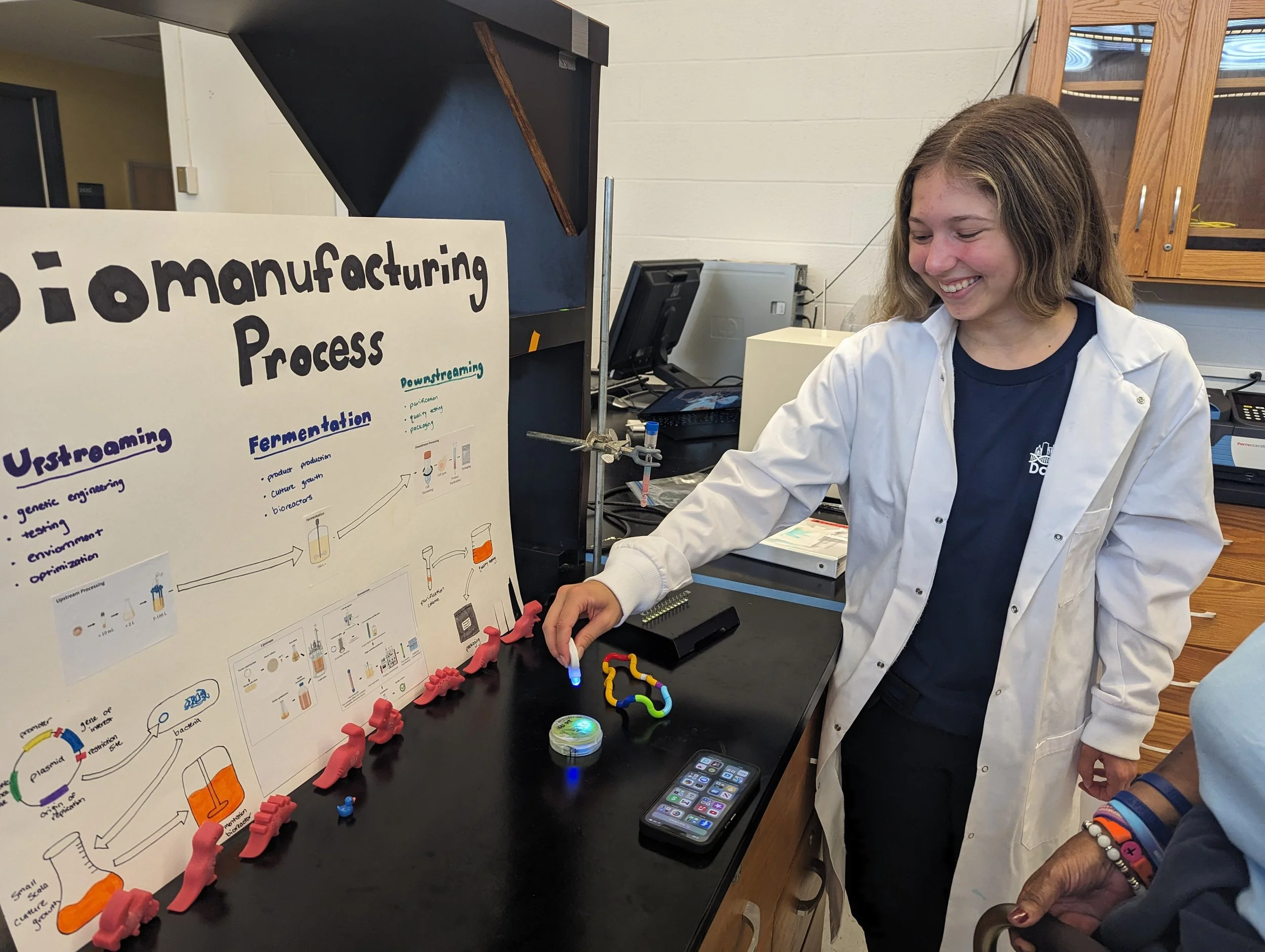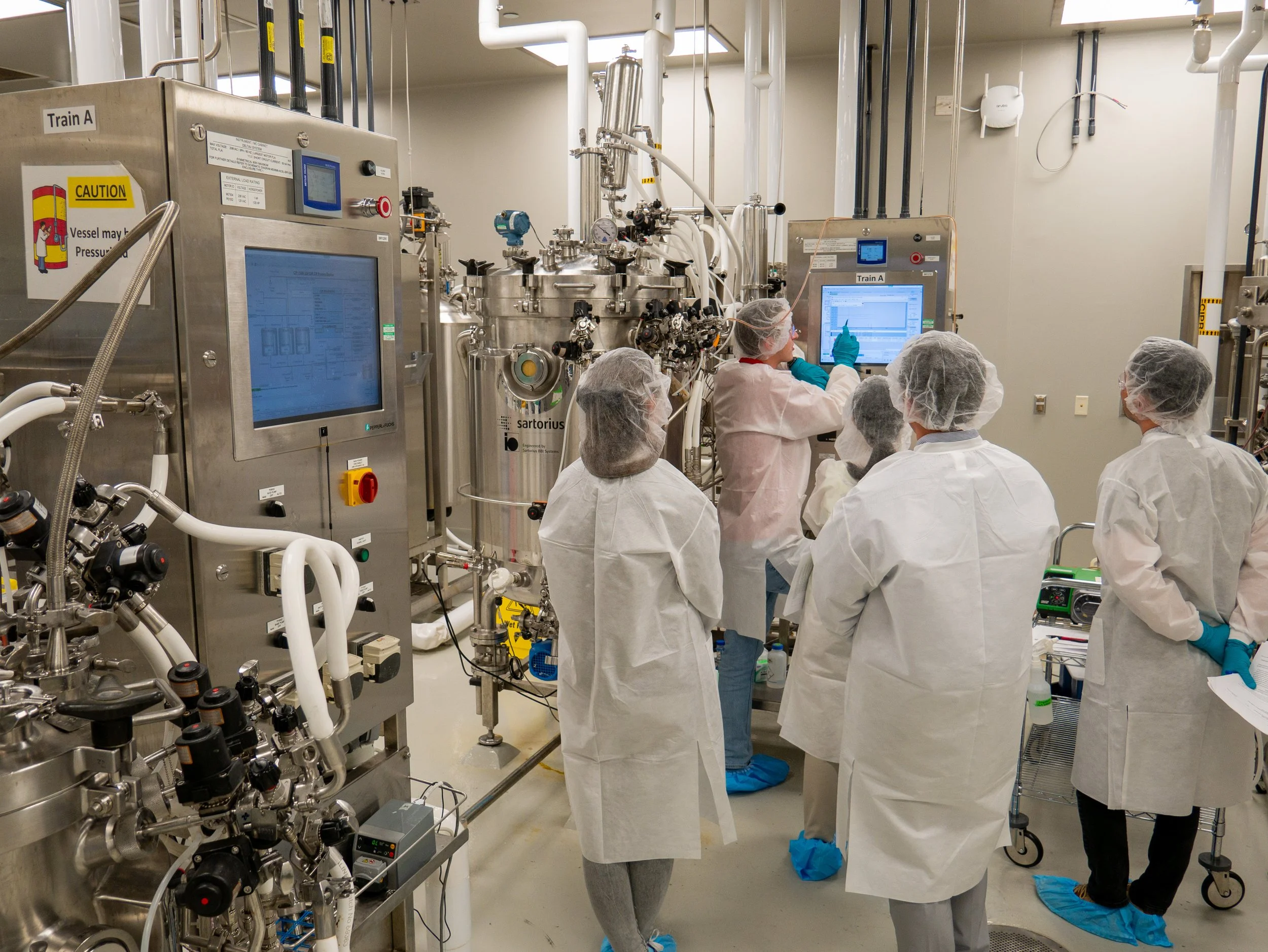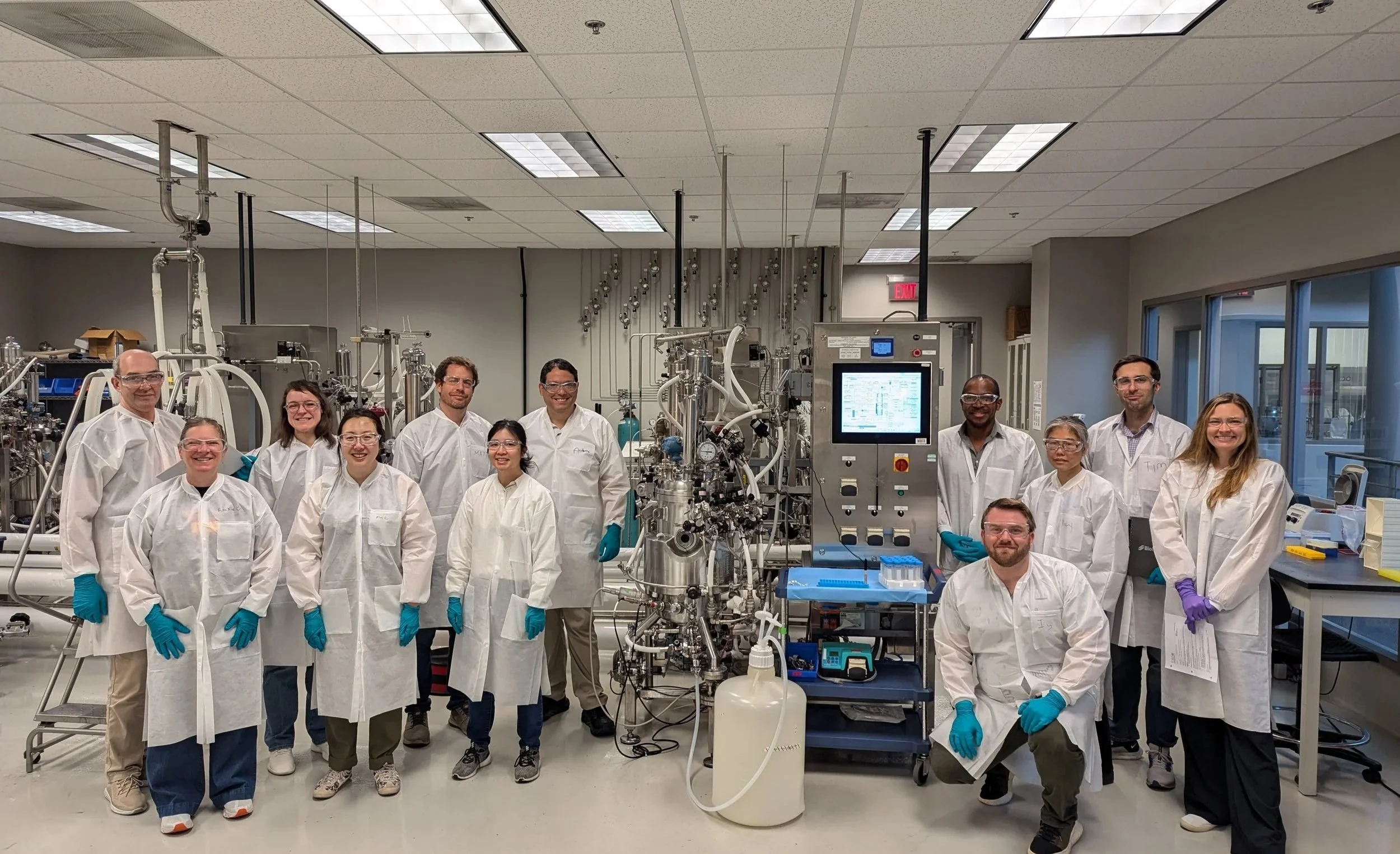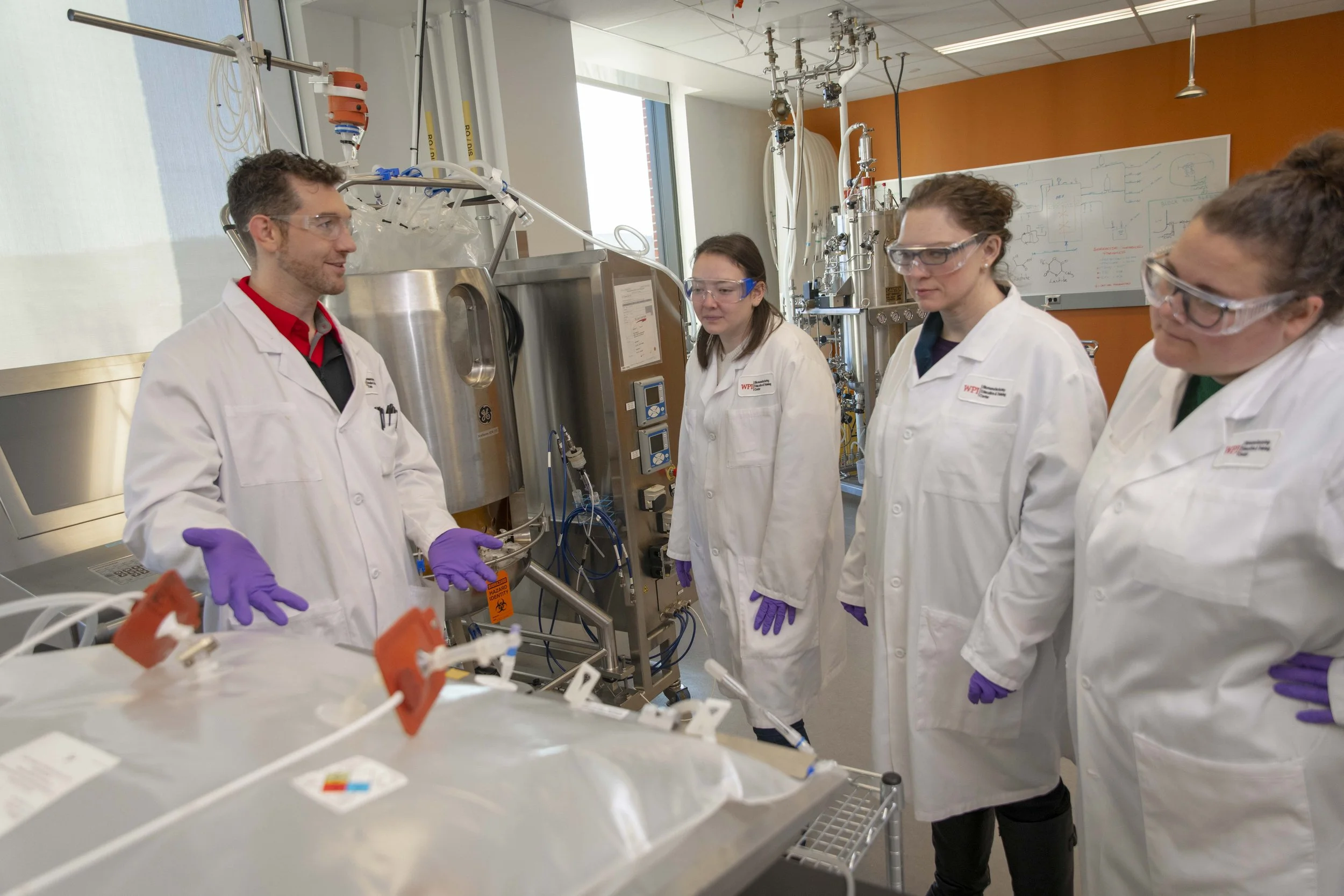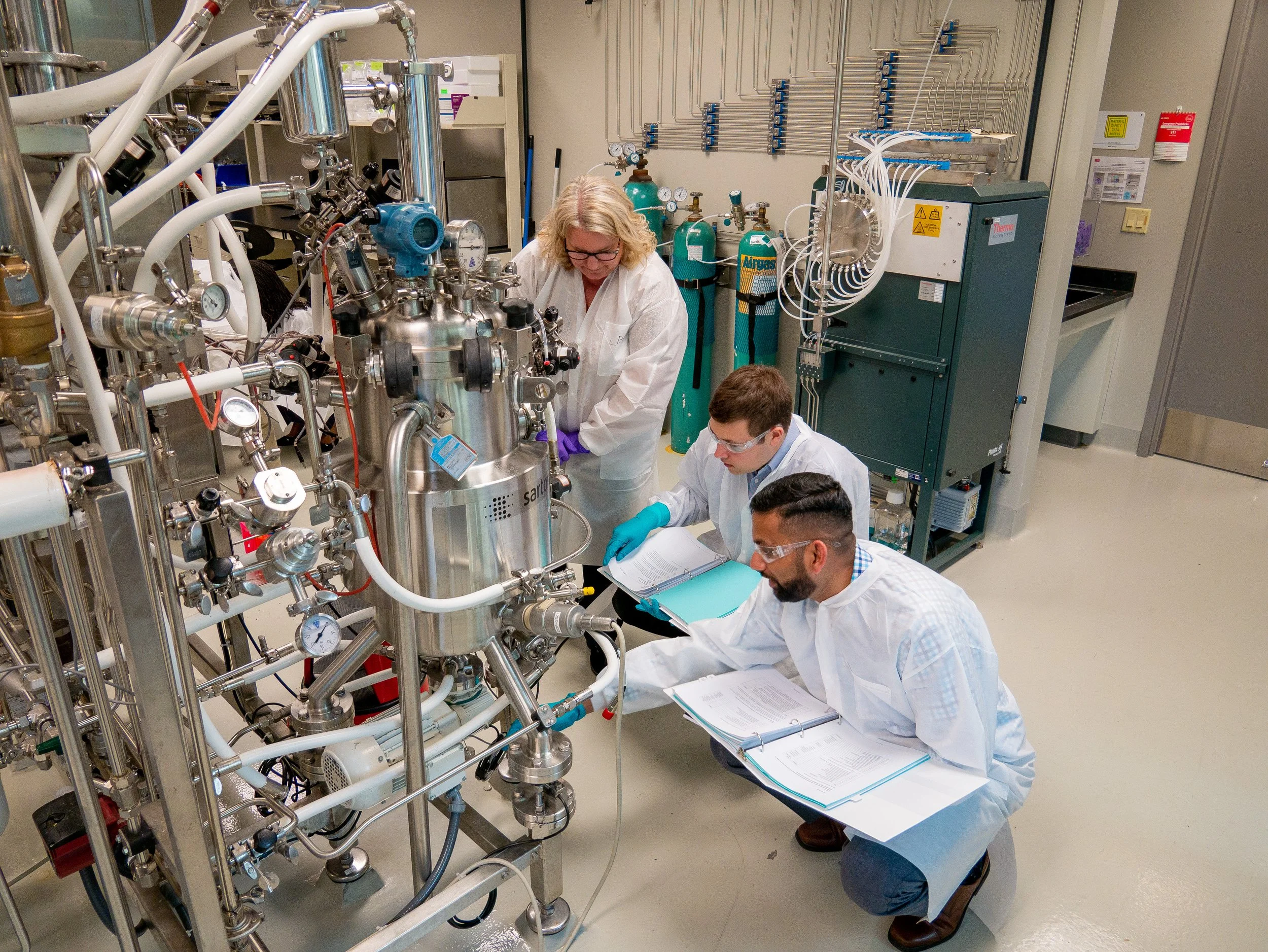
Education and Workforce Development
A skilled and trained workforce is critical for the success of the bioindustrial manufacturing industry. In 2023, the U.S. bioindustrial bioeconomy supported nearly 650,000 jobs in the U.S., and that number is expected to increase to at least one million jobs by the end of this decade. These jobs will be at all levels, from highly skilled technical workers, to bioprocessing engineers, pilot plant operators, research and development scientists, microbiologists, and more. Currently, there is unmet demand for almost every emerging biotechnology role.
Supporting the bioindustrial manufacturing workforce also has significant downstream effects: every direct job in the industrial bioeconomy generates and supports 11 additional U.S. jobs.
BioMADE is building a globally competitive workforce to ensure Americans are prepared and ready to enter this rapidly growing industry. By pairing industry needs with programs at K-12 schools, community colleges, universities, and professional development organizations, BioMADE is creating the workforce of the future. BioMADE focuses its Education and Workforce Development efforts on:
K-12 Education: Exposing students to biotechnology tools and their real-world applications
Community Colleges and Universities: Bridging the gap between postsecondary education and industry needs
Professional Development: Keep the expanding workforce on the cutting-edge of skills and knowledge
Photo above © North Carolina State University
Building Awareness of Bioindustrial Manufacturing and Careers
It’s never too early for kids to get excited about science and envision their future careers. BioMADE partners with K-12 schools to engage younger students in the basics and principles behind biotechnology and bioindustrial manufacturing, showcase the real-world ways biotechnology improves our daily lives, and introduce potential career opportunities. Bioindustrial manufacturing has limitless potential to excite curious young minds and set them up for a successful and rewarding career in the field. Read how two students, Madison and Stella, who attended a bioindustrial manufacturing summer camp supported by BioMADE, found a passion for science and now envision their future careers in this exciting field.
Photo at right © BlueHalo
Training the Workforce of Tomorrow
To ensure success of recent graduates and the companies hiring them, students graduating from universities and community colleges must have industry-ready skills and competencies. BioMADE is ensuring that postsecondary programs and industry needs are aligned to cultivate a deep and varied talent pool ready to fill well-paying jobs around the country. BioMADE projects have introduced college freshman to careers in bioindustrial manufacturing, created a biomanufacturing project management certificate program for college students, and brought together community college and university students to solve real-world research biomanufacturing problems.
Photo at right © BTEC - North Carolina State University
Staying on the Cutting Edge
Bioindustrial manufacturing is rapidly changing and expanding. This presents a prime opportunity to reskill and modernize the workforce from other sectors and underscores the importance of keeping current employees up to date on needed skills. BioMADE provides workshops and other continuing education opportunities to help individuals and companies keep their expanding workforce on the cutting-edge of skills and knowledge. Learn more about how BioMADE is introducing veterans to bioindustrial manufacturing, running metabolic engineering and microbial fermentation workshops for current employees in the industry, and developing industry-driven curricula.
Photo at right © BioMADE
Projects and
Resources
Nearly 8,500 individuals have participated in BioMADE education and workforce development projects – and counting! These students of all ages are learning new skills, honing expertise, and preparing to join an increasingly in-demand workforce to maintain U.S. competitiveness in biotechnology. Learn more about BioMADE’s Education and Workforce Development projects here.
Members can access curricula, instructions to build a DIY bioreactor, course materials, trainings, and many more resources that were developed through BioMADE projects. Find all resources here.
To learn more, members can also read BioMADE’s Education and Workforce Development Blueprint – Building National Capacity for Bioindustrial Manufacturing – available in the Member Portal.
Photo at left © Worcester Polytechnic Institute

